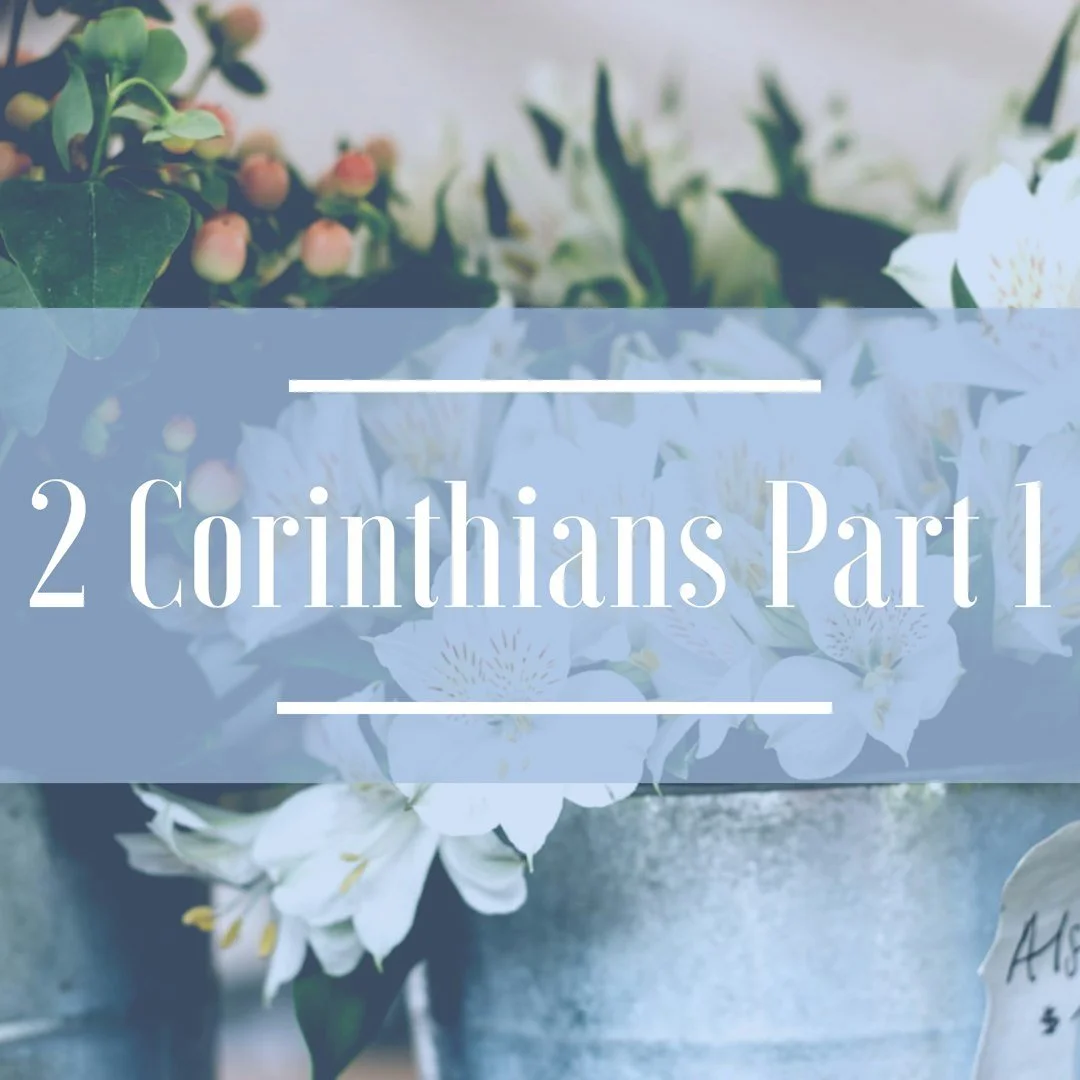General “How To” and “What About” Questions
I filled out my answers but am not sure if I got them right. Can you help me? I sure can, though my answer might be different than you expect. My goal in writing these lessons is to help you look to the Scriptures for your answers. Over time, you will begin to grow in your confidence that you are on track. For the most part, you will be guided from the Scriptures to the “correct” answer. In doing so, I’m also teaching you how to study the Bible in these lessons (called hermeneutics). Generally, as you study, you will discover the flow of the passage. I figure if I ask the right question and ask it well enough, you will know exactly what I’m asking. Of course, I may hopelessly confuse you, but that’s my fault for being unclear. God’s Word is not out of reach for us to understand.
What version of the Bible do you use in your studies? I use the NASB (New American Standard Bible), though in the process of writing the studies, I will reference and double check with the LSB, HCSB, ESV, NIV, and NKJV.
Can I use a different Bible version when I do my lessons? Absolutely! The best Bibles for study would be the NASB, ESV, LSB, HCSB, NKJV, and the NIV. When I write the studies, I check over those over versions, so generally, you should be able to use any of those and not be too confused!
I think these studies are too hard for me! My brain feels like it’s going to explode! I understand how you feel. Studying the Bible can feel a bit like starting to exercise after a hiatus. It’s amazing how our brains get out of shape, but I can promise you that it won’t take long to get back in the groove again. It’s true! Persevere in this “storing up treasure in heaven” effort. Keep going to the Lord for help. He delights in helping us understand His Word. You will be so glad you did!
These lessons are soooo long! How can I find the time to do them? If you’re new to Scripture Paths Bible studies, it can feel overwhelming trying to fit in the time to do these lessons. Like anything new we undertake and must add to our schedule, we make time for the things that matter most to us. If you desire to spend time with the Lord and get to know Him better, then you’ll figure out a way to make it happen. The Lord will help you if you ask Him. Generally, the lessons will take 1-3 hours in your week. I want your Bible study time to be like going for a long swim rather than popping in and out of the shower. The Word of God washes and refreshes us, but we need to be in it long enough for it to have its effect.
The lesson series has already started, but can I jump in anyway? Yes, you can! Of course, you will feel a little behind, but you’ll catch up. You can also go back and work on the lessons you may have missed after the study is finished or concurrent with the study to get caught up. My thought is if you were in my Bible study at church and you wanted to join halfway through the year, I would welcome you and help you get acclimated to the study, so joining an online version should work similarly. My biggest encouragement for you—and your greatest protection—would be to familiarize yourself with the chapters you missed by reading and rereading them until you feel comfortable with the book’s contents. This will help you read, understand, and study more accurately.
Can I use your studies to teach a group of ladies? Absolutely! That’s why I’ve posted them here. They are for your use. Feel free to copy the lessons and distribute them or direct the ladies to my site, so they can print out the lessons themselves. Because my lessons are copyrighted, if you go to a store like Office Depot for printing, they will need a confirmation email from me giving permission for you to print them. I’d be happy to do this for you!
Can men use your studies? This is a great question, though the answer may not be as cut and dried as you may like. Though women are not to teach men, and I heartily believe that Scriptural mandate, men need to consider whether using my studies constitutes me teaching them. I’ve had husbands do the studies with their wives, as a way to be in the Word together and to know what they are learning. I’ve also had pastor’s do the studies to make sure they are suitable for their ladies to work through. I write the studies for women, yet our inductive, expositional method of working through the text of God’s Word is something all can benefit from. In the end, each man needs to live according to his conscience. If he feels fine before the Lord using the study for his own sake or to help shepherd his family, then he’s more than welcome to use the studies.
Bible Study Nuts and Bolts Questions
Do you have the Bible study answers or a teacher’s guide for the studies? For some of the studies, I do have a “Teacher’s Guide,” which I post so you can double-check your answer. I do the teacher’s guides when I teach through a study myself. Though I’ve personally done all the studies on my site, I deleted my answers for some of the studies before I realized that some might benefit from a “teacher’s guide.”
Sometimes you have us define a word, and in parentheses there’s something called the Strong’s numbers. What is that? And do I do something special for it? Another feature of my Bible studies is the opportunity to do word studies. Whenever I want you to study a word further, I’ll include the Strong’s Exhaustive Concordance number with it. The Strong’s number is basically a reference number attached to most words found in the Bible. The Strong’s number allows you to search for word in different reference works easily—even when you don’t know Hebrew or Greek. The easiest way to find the biblical definition for a word is to use one of the many websites devoted to helping people study the Bible. Sites like www.blueletterbible.com and others like it, allow you to type in the Strong’s number easily to find the word’s definition. I do have a step by step guide for doing a word study the “old fashioned way,” which is by using books—of all things! If you plan to do your word definitions that way, then be sure to write and ask me for the guide I’ve put together to help you. The word study tools (online or in books) are valuable for any Bible study student, yet not mandatory for completing these lessons. It’s another way to deepen your understanding of the passage.
What about commentaries? Commentaries are great! And feel free to consult them, but please wait to do so until you, yourself, have considered the text and understand the flow of the passage. Reading commentaries can be helpful, but they can confuse if you haven’t studied the text yourself first. In some of the study series, I even include a list of recommended commentaries to use. Rule of thumb? Study first. Check your findings with good commentaries. There are horrid ones out there that don’t even believe the Bible, so you do need to use discernment in what you check. You can also check with your pastor to see if he has any recommendations for you.
I noticed some lessons have “eager beaver” questions. What are those? Eager Beavers are rabbit-trail questions. They don’t really fit with the theme of the passage, but they’re interesting, nonetheless. They’re extra goodies I included in the lesson for your enjoyment and growth.
Why do you use the New American Standard Bible in your Bible studies? One reason is because it’s the version I started using when I first became a Christian, but the primary reason is because it and the English Standard Version (ESV) are the best for study. In my opinion, which you can take or leave, these two versions represent the best of the “formal or literal method of translation.” This kind of Bible translation puts more emphasis on each word of the inspired text. Translators seek to translate every word as closely as possible to the original text, while also trying to communicate the structure and emphasis within the sentences. For those who wish to study their Bibles and examine the text closely, literal translations are better.
How can I better understand word definitions and how to study them? The number one thing you need to remember when studying a word’s definition is that all words derive their meaning from the context of the passage. When you look up a word’s meaning you may discover it has a wide range of meaning. What that tells you is the original word can mean a lot of things, yet the biblical writers had a specific way they wanted us to understand it. Our job as Bible students is to learn about the word, its range of meaning, and then considering the context, and what the author is communicating, use that word choice. One way to see this is by noticing the different word choices Bible translations make. This helps you understand the word’s range of meaning and how the Bible translators themselves considered the context of the passage.
Do I need to buy a bunch of Word study helps or commentaries to do this study? Quick answer? No, you don’t. There are good, solid helps you can access online, especially when it comes to Word studies. There are a lot of commentaries out there that don’t even believe the Bible, so you must use wisdom in purchasing them. I would encourage you to start by asking your pastor, from there, I would recommend googling “The Master’s Seminary commentary list.” There are different versions of this older list, but it’s a good place to start.
I’m new to studying the Bible and am not sure how to read all the verse references you list. That can get so confusing! Let me see if I can shed some light on this for you. First comes the book, then the chapter, separated by a colon, then the verse or verses, like this: John 3:16. It gets a bit more confusing when I start listing verse references. It’s helpful to know that anytime I switch to a new book, the reference will be separated by a semi-colon, like this: John 3:16; 1 Corinthians 5:14-15. It’s also helpful to know switching from one chapter to another in the same book is also separated by a semi-colon: 1 Corinthians 5:14-17; 7:1-2; 15:58. If the verses are separated only by a comma, then you know it is still in the same chapter, like this: Titus 2:1, 3-5, 11-14. Generally, I also list all the books in the order they appear in our Bibles, so you can keep flipping forward through the Bible.






